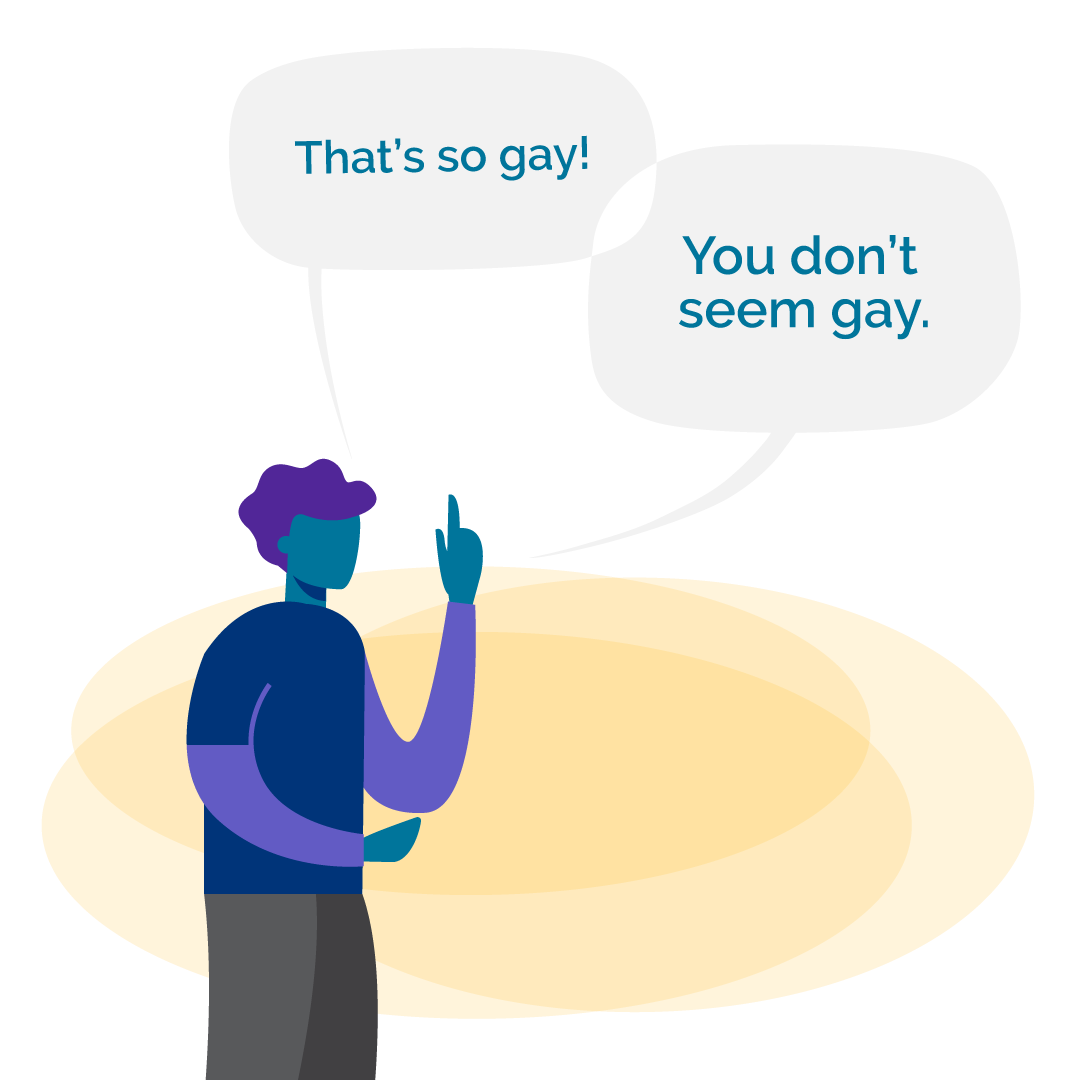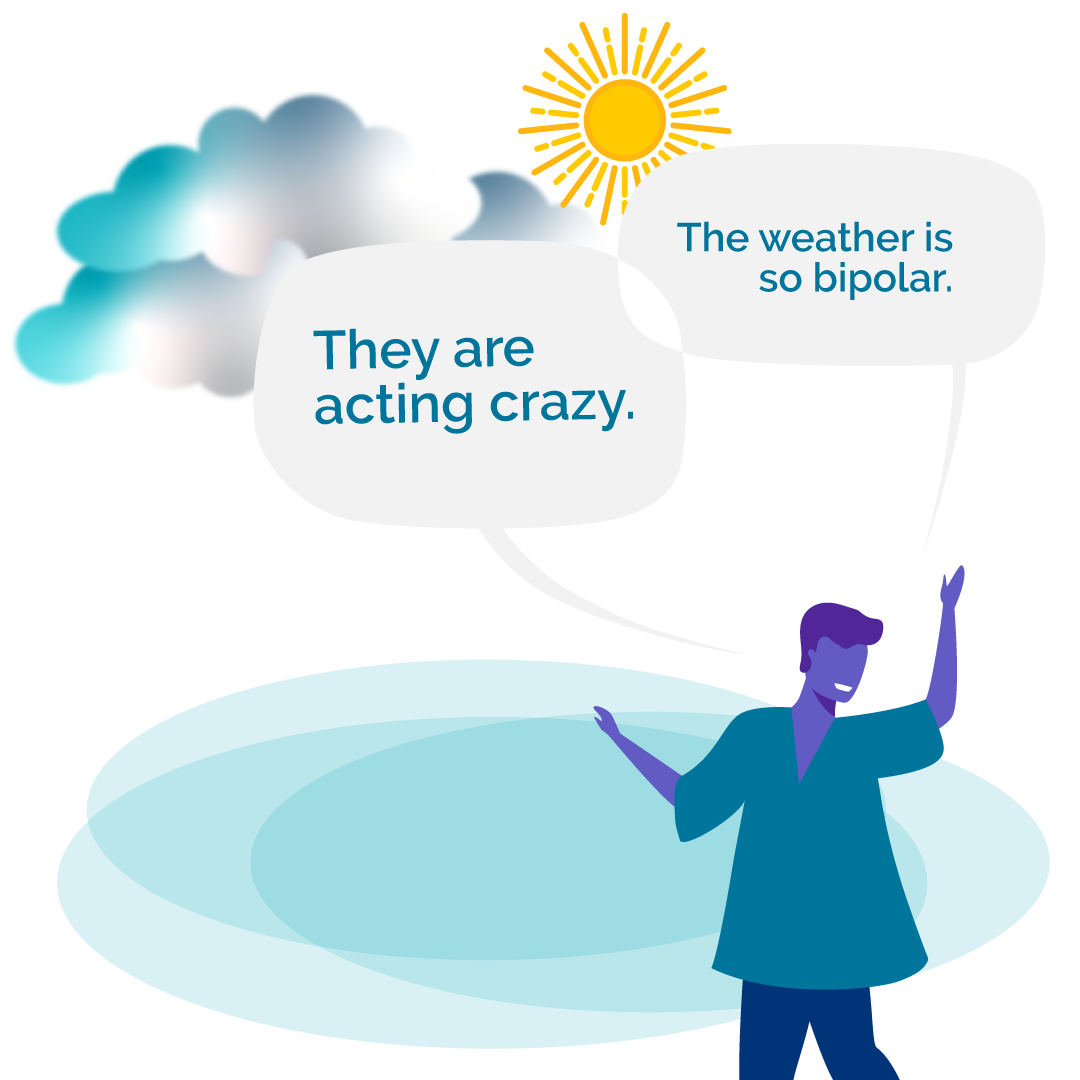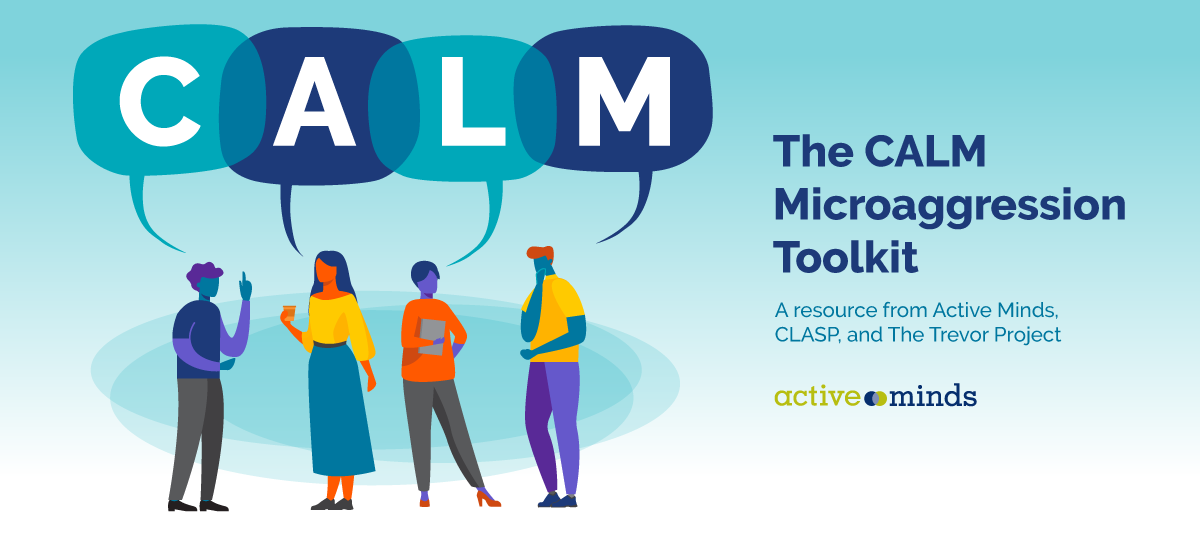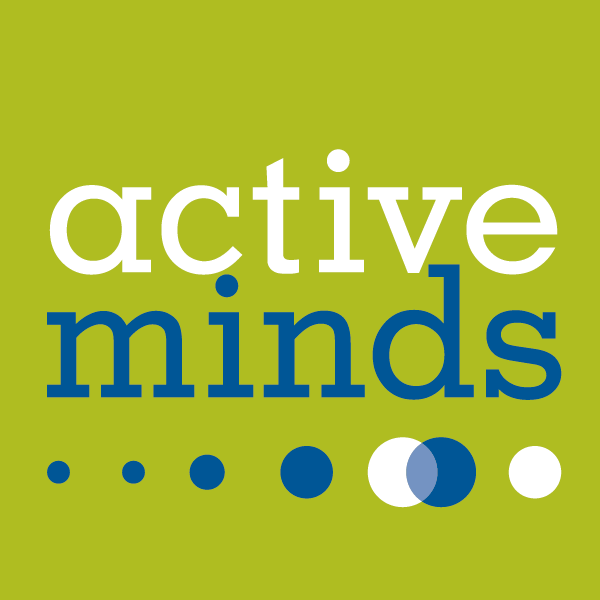At one time or another, we’ve all said the wrong thing. Despite best intentions, anyone can commit a microaggression. Embedded in our culture, institutions, and interactions, these systems can become part of our thinking without us even realizing it.
When we use words or actions to create harm against stigmatized or culturally marginalized groups, such as people living with mental illness or other disabilities, people of color, women and femmes, and/or LGBTQ+ people, we’ve committed a microaggression. Examples of microaggressions include:



While we should all make conscious efforts to learn about microaggressions and avoid them, we may still encounter or use them. When this happens you may be unsure of how to move forward. For these situations, Active Minds, in partnership with The Trevor Project and CLASP, has created the CALM Microaggression Repair Tool, a resource for repairing relationships following microaggressions.
CALM gives each of us step-by-step instructions on how to move forward after committing a microaggression. The most important thing we can do is focus on the impact these words or actions have on the other person, and make a conscious effort to do better in the future. To do so, start with the following four steps: Center the other person, Acknowledge impact over intent, Listen, and Make it right.
Continue this conversation with your friends, family, colleagues, and classmates by sharing the CALM Microaggression Repair Tool. When we each commit to taking action, we can inspire change not only within ourselves but in our communities.




